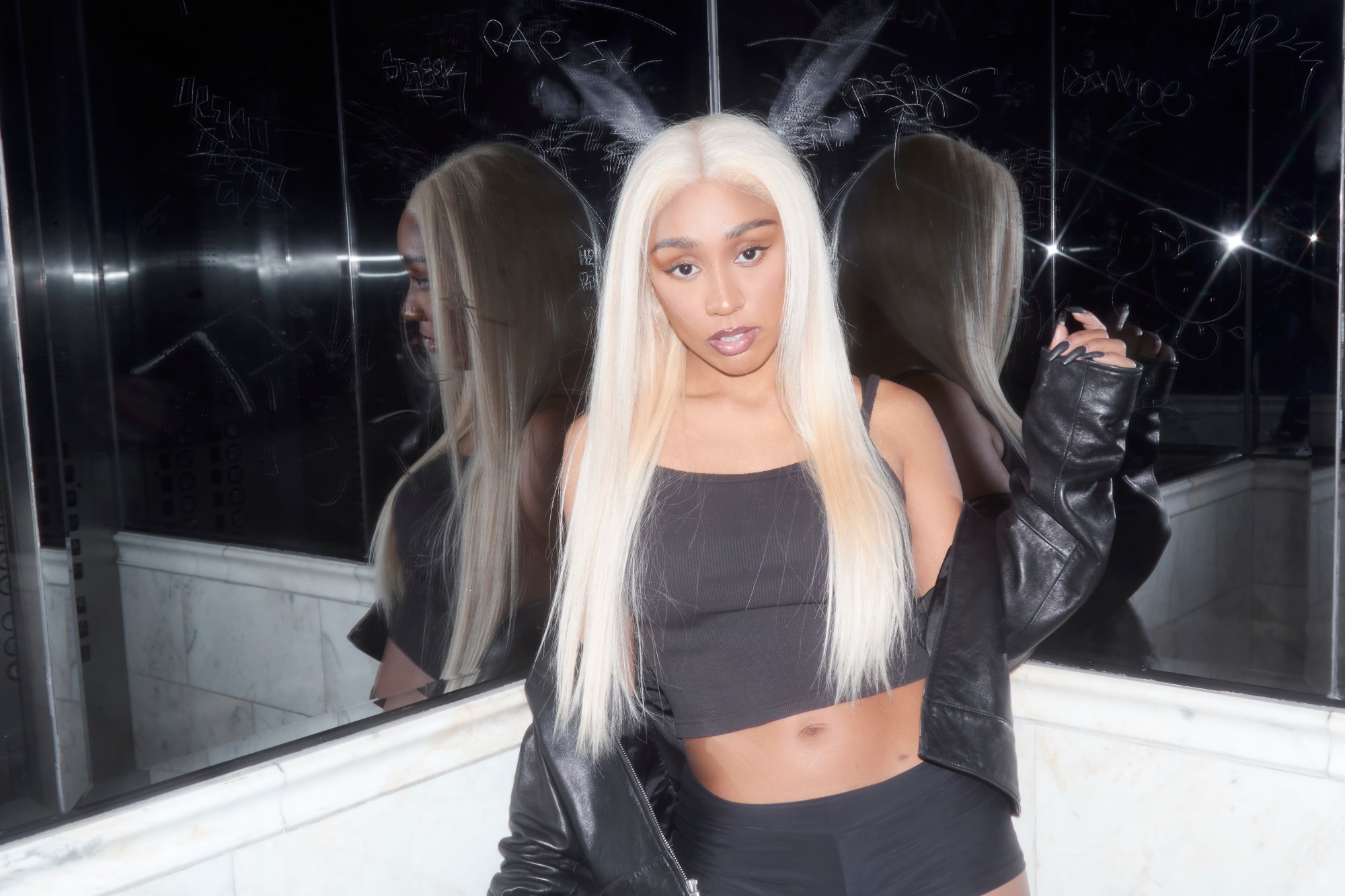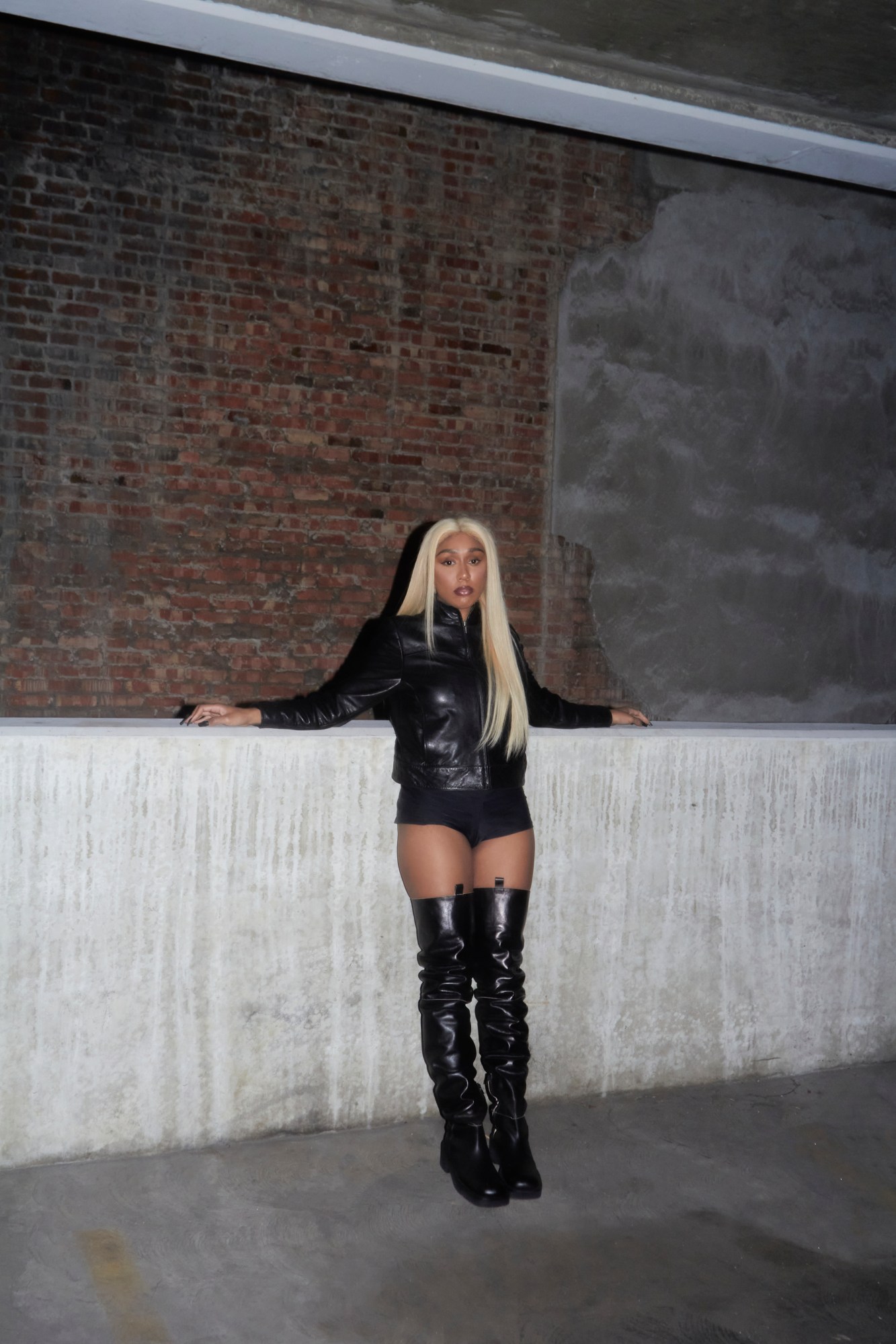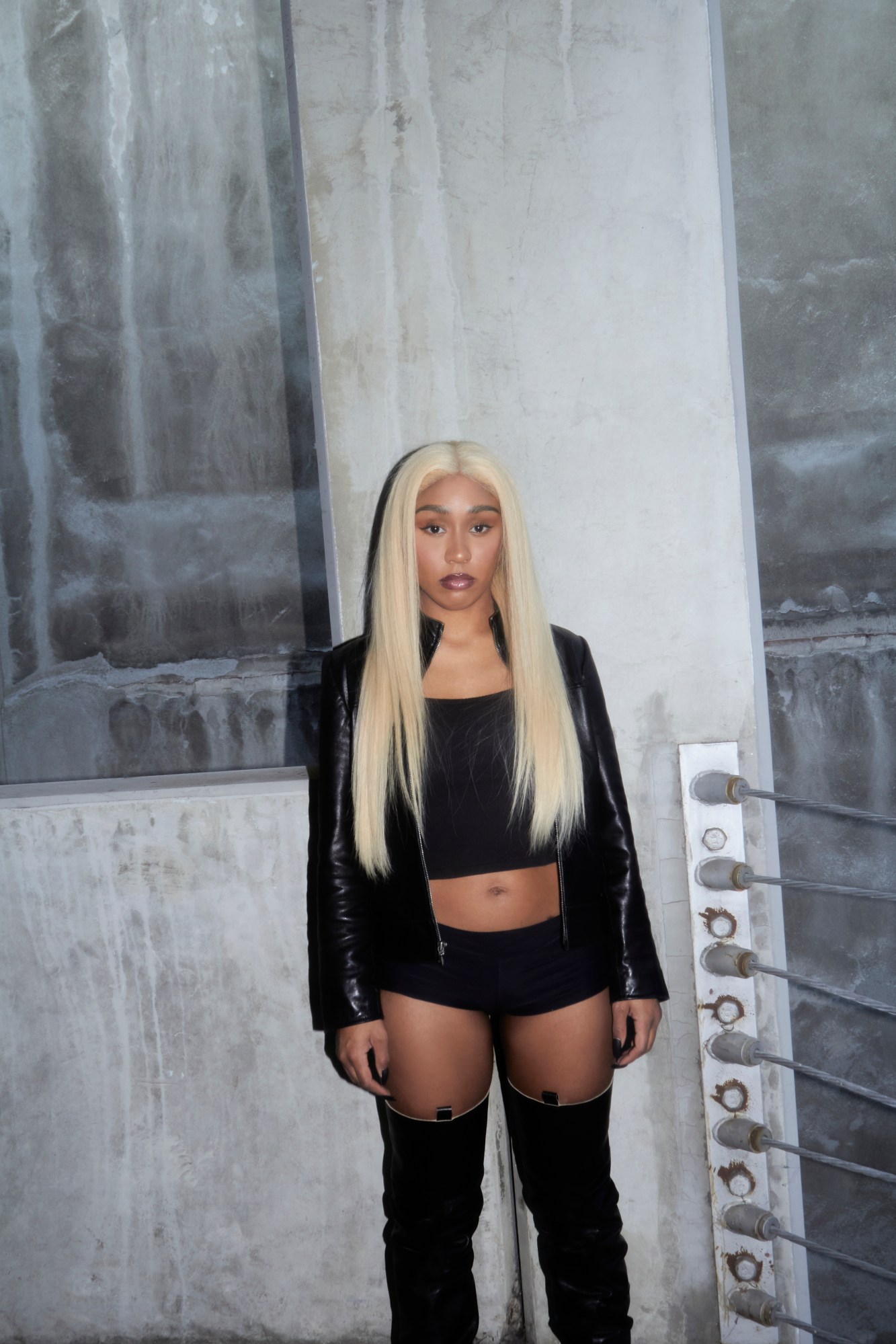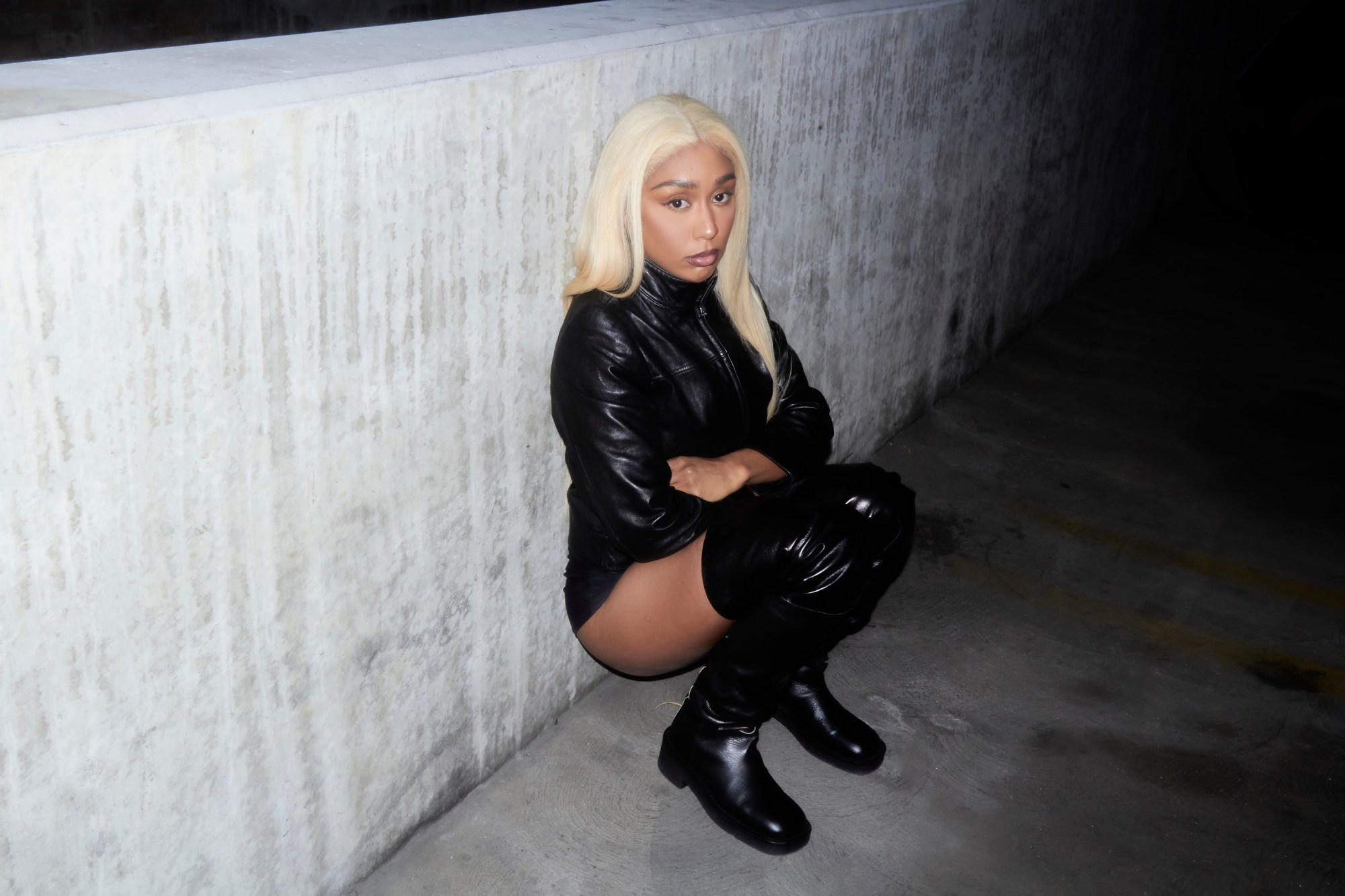“I still feel very much like a mystery,” Brittany Foushé muses over a video call. “But in a way, I love that.” The singer-songwriter – known simply as Fousheé – shot to fame in 2020 when her striking, honeyed vocal was sampled on rapper Sleepy Hallow’s “Deep End (Freestyle)” and went viral on TikTok. The thing is, no one knew who the vocalist was. Revealing herself by participating in the challenge, Fousheé released the original “Deep End” and promptly became the first Black woman to enter the top 10 of the US Billboard Alternative Airplay charts in 32 years.
Two years later and people know a little more about Fousheé – but only ever on her terms. The internet is left guessing her age, and she may or may not have appeared on Season 15 of The Voice in a previous life. What we know for sure is that she’s a New Jersey native with roots in Jamaica, and her mum was the drummer in PEP, an 80s women-only reggae band. Growing up, a lot of importance was placed on her creativity.
Post-TikTok moment, Fousheé has put out two full-length projects and been on two massive tours, serving as support act for James Blake in the States, and for her friend and collaborator, Steve Lacy, internationally. “Both of them carry themselves very humbly,” she says. “They don’t have to do too much to be effective – I think they both taught me not to get in my head so much”. The day we talk she’s in Australia, in the midst of her tour with Lacy. It also happens to be right after the release of her second project, softCORE, and the news that she and Lacy have been Grammy-nominated for their collaboration on another huge viral track, “Bad Habit”. Fousheé laughs when I tell her I’m holding the hypnotic song responsible for toxic decisions made in my personal life. “I’ll share the blame,” she grins.

It’s her first day off in a minute, and so our conversation feels like she’s processing it all in real time – she’s contemplative and soft-spoken. The pace might be picking up, but Fousheé is more than happy to retain that early sense of enigma. “The Grammy stuff happened really fast,” she says. “My whole career has happened fast, it doesn’t feel real. The music has reached so many people. Although I’m outgoing and have really big dreams, I’m really introverted and need that privacy. I want to keep certain parts of me private.”
Of course, this means that her candour and vulnerability rip through her music instead. On softCORE, rage cuts deftly through, chaotically swerving from punk energy (she namechecks her love of Bad Brains and X-Ray Spex) to something altogether gentler and folkier. Her vocals are sometimes mellifluous, raspy and dreamlike; elsewhere a blood-curdling scream. “I pay attention to how the songs make me feel. The genre, I guess, is all over the spectrum; I was mostly paying attention to the feeling,” she explains.
Incidentally, Fousheé herself seems to embody this juxtaposition of hard and soft; power and feeling. Today she’s got long black talons for nails and sleek, blonde, bad bitch hair; quietly smiling as she shows me the view from her Sydney hotel room and talks with sweet enthusiasm about koalas. “I think balance is important,” she explains. “Both things are necessary. I can be very soft and vulnerable at times, but I’m a Leo, so I can also get very aggressive.”

This aggression is central to softCORE, where the artist channels her grievances with the music industry alongside those surrounding relationships. “Mostly, I was angry with the roles I thought I had to play in the industry, the roles I had to play in relationships,” she says, before unpacking the way the record operates within a space of gender fluidity: “I wanted to blur the lines; to take on other roles in order to question the boundaries of mine, and to rebel against it.”
We discuss the roles women are often expected to play in romantic relationships – those rooted in caregiving, serving as mothers and therapists – and how it can feel frustrating to work on yourself when that energy isn’t matched by a partner. She draws a link between this and how she is perceived as a Black woman in the music industry. “It’s interesting because I feel like I’m doing the work, but you can’t do the work for other people,” she says. “They might not get what I’m trying to communicate, or share the same perspective. There’s people who think this is an R&B album… I’m like, ‘if you call me R&B, you don’t understand!’”
Fousheé reflects on how expressions of anger are often held against Black women and women in general; something she was mindful of while making the project. “It’s taking the reins of the anger, and funnelling it into something that won’t be perceived negatively,” she says. “It can be sexy. It’s carefree and fun but I’m still getting these things off my chest. It’s not a bad connotation – it’s like, feeling relieved to rid yourself of the anger.”

While she’s enjoyed sitting with softCORE, Fousheé doesn’t think she’s likely to make anything like it again. “It felt very important for me to express myself; to experiment with a sound that I love, to feel how I felt. But I don’t think I’ll feel this way forever,” she says. “It helps people better understand who I am right now though, and weeds out people who maybe think a bit more rigidly. Because I don’t plan on sticking to anything, really – I make music to have that freedom and to create. The feel will vary and the music will vary as I grow. Otherwise, you might as well be dead!” She laughs. “If you’re not growing, you’re dying.” Part of Fousheé’s mystery is exactly this refusal to settle in one space or bow to any expectations but her own. “I guess I put it all in the music,” she shrugs.
For now, that music is a raw, unpredictable catharsis, where Fousheé encourages you to feel yourself, and also to feel your frustrations. She smiles, “Sometimes you’ve gotta scream it out.”
Credits
All photography Angella Choe

